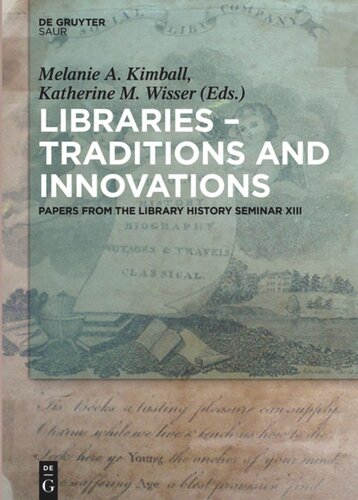

Most ebook files are in PDF format, so you can easily read them using various software such as Foxit Reader or directly on the Google Chrome browser.
Some ebook files are released by publishers in other formats such as .awz, .mobi, .epub, .fb2, etc. You may need to install specific software to read these formats on mobile/PC, such as Calibre.
Please read the tutorial at this link: https://ebookbell.com/faq
We offer FREE conversion to the popular formats you request; however, this may take some time. Therefore, right after payment, please email us, and we will try to provide the service as quickly as possible.
For some exceptional file formats or broken links (if any), please refrain from opening any disputes. Instead, email us first, and we will try to assist within a maximum of 6 hours.
EbookBell Team

0.0
0 reviewsMany consider libraries to be immutable institutions, deeply entrenched in the past, full of dusty tomes and musty staff. In truth, libraries are and historically have been sites of innovation and disruption. Originally presented at the Library History Seminar XII: Libraries: Traditions and Innovations, this collection of essays offers examples of the enduring and evolving aspects of libraries and librarianship. Whether belonging to a Caliph in 10th-century Spain, built for 19th-century mechanics, or intended for the segregated Southern United States, libraries serve as both a reflection and a contestation of their context. These essays illustrate that libraries are places of turmoil, where real social and cultural controversies are explored and resolved, where invention takes place, and where identities are challenged and defined, reinforcing tradition and commanding innovation.